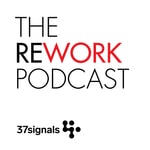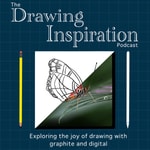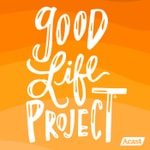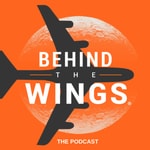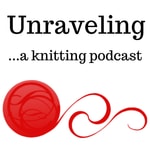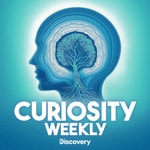Weekly Space Hangout – Details, episodes & analysis
Podcast details
Technical and general information from the podcast's RSS feed.

Weekly Space Hangout
Weekly Space Hangout Journalist Team
Frequency: 1 episode/9d. Total Eps: 81

Recent rankings
Latest chart positions across Apple Podcasts and Spotify rankings.
Apple Podcasts
🇺🇸 USA - astronomy
27/07/2025#97🇺🇸 USA - astronomy
23/07/2025#93🇺🇸 USA - astronomy
22/07/2025#90🇺🇸 USA - astronomy
21/07/2025#81🇺🇸 USA - astronomy
20/07/2025#73🇺🇸 USA - astronomy
19/07/2025#67🇺🇸 USA - astronomy
18/07/2025#57🇺🇸 USA - astronomy
17/07/2025#50🇺🇸 USA - astronomy
16/07/2025#44🇺🇸 USA - astronomy
15/07/2025#34
Spotify
No recent rankings available
Shared links between episodes and podcasts
Links found in episode descriptions and other podcasts that share them.
See all- https://www.moiyamctier.com/
275 shares
- http://www.wshcrew.space/
117 shares
- https://www.patreon.com/astronomycast
121 shares
- https://www.patreon.com/cosmoquestx
117 shares
RSS feed quality and score
Technical evaluation of the podcast's RSS feed quality and structure.
See allScore global : 53%
Publication history
Monthly episode publishing history over the past years.
Weekly Space Hangout — January 11, 2023: The Final Episode
jeudi 12 janvier 2023 • Duration 49:07
Join us this week for our first News Roundup of the New Year, which is also the final episode of the Weekly Space Hangout! Thank you to everyone who made this show possible over the years and who helped bring science to the community!
****************************************
The Weekly Space Hangout is a production of CosmoQuest. Want to support CosmoQuest? Here are some specific ways you can help:
- Subscribe FREE to our YouTube channel at https://www.youtube.com/c/cosmoquest
- Subscribe to our podcasts Astronomy Cast and Daily Space where ever you get your podcasts!
- Watch our streams over on Twitch at https://www.twitch.tv/cosmoquestx – follow and subscribe!
- Become a Patreon of CosmoQuest https://www.patreon.com/cosmoquestx
- Become a Patreon of Astronomy Cast https://www.patreon.com/astronomycast
- Buy stuff from our Redbubble https://www.redbubble.com/people/cosmoquestx
- Join our Discord server for CosmoQuest - https://discord.gg/X8rw4vv
- Join the Weekly Space Hangout Crew! - http://www.wshcrew.space/
Don't forget to like and subscribe! Plus we love being shared out to new people, so tweet, comment, review us... all the free things you can do to help bring science into people's lives.
Weekly Space Hangout — January 4, 2023: Dr. Eddie Schwieterman Discusses Nitrous Oxide as a Biosignature
jeudi 5 janvier 2023 • Duration 01:00:27
Historically, scientists using spectrographic analysis to study exoplanet atmospheres have considered oxygen and methane as two key biosignatures when identifying "life-friendly" planets. But could nitrous oxide (N2O) — aka "Laughing Gas" — also be a reliable biosignature? A recent paper published in the October, 2022, Astrophysical Journal explains why N2O can — and should — be included as a biosignature gas. Tonight we are pleased to welcome the paper's lead author, Dr. Eddie Schwieterman, astrobiologist at UC Riverside, to discuss why N2O is an indicator of life.
Dr. Eddie Schwieterman is an Assistant Professor of Astrobiology in the Department of Earth and Planetary Sciences at the University of California, Riverside. He earned his undergraduate degrees in physics and astrophysics from the Florida Institute of Technology and his PhD in astronomy and astrobiology from the University of Washington in Seattle.
Dr. Schwieterman studies the climate, atmospheric chemistry, geochemical evolution, and spectral appearance of terrestrial (rocky) planets. His research specifically focuses on the habitability and potential biosignatures of exoplanets.
To learn more about Eddie's research visit his website (www.eddieschwieterman.com) and follow him on Twitter: @nogreenstars.
You can also read more about nitrous oxide as biosignature in the following SciNews article: Nitrous Oxide Could Help Detect Extraterrestrial Life on Exo-Earths.
****************************************
The Weekly Space Hangout is a production of CosmoQuest. Want to support CosmoQuest? Here are some specific ways you can help:
- Subscribe FREE to our YouTube channel at https://www.youtube.com/c/cosmoquest
- Subscribe to our podcasts Astronomy Cast and Daily Space where ever you get your podcasts!
- Watch our streams over on Twitch at https://www.twitch.tv/cosmoquestx – follow and subscribe!
- Become a Patreon of CosmoQuest https://www.patreon.com/cosmoquestx
- Become a Patreon of Astronomy Cast https://www.patreon.com/astronomycast
- Buy stuff from our Redbubble https://www.redbubble.com/people/cosmoquestx
- Join our Discord server for CosmoQuest - https://discord.gg/X8rw4vv
- Join the Weekly Space Hangout Crew! - http://www.wshcrew.space/
Don't forget to like and subscribe! Plus we love being shared out to new people, so tweet, comment, review us... all the free things you can do to help bring science into people's lives.
Weekly Space Hangout — October 19, 2022: NICER Maps a Neutron Star's Surface with Dr. Zaven Arzoumanian and Dr. Keith Gendreau
Season 2022
jeudi 20 octobre 2022 • Duration 55:04
Pulsars have baffled scientists for decades, including how they work and what form matter takes within a pulsar. Using data collected by the Neutron Star Interior Composition Explorer (NICER) Mission between July 2017 and December 2018, scientists have not only been able to make the most precise size measurements of Pulsar J0030+0451 (located 1,100 light-years away in the constellation Pisces), but they have also mapped hotspots located on its surface. This week we are joined by Dr. Zaven Arzoumanian and Dr. Keith Gendreau, members of the Goddard Team that mapped J0030 and co-authors of "Focus on NICER Constraints on the Dense Matter Equation of State" published in the Astrophysical Journal Letters in December, 2019.
Zaven is the Deputy Principal Investigator and Science Lead for NICER.
Keith is Principal Investigator NICER. Be sure to follow him on Twitter: https://twitter.com/keithgendreau
You can read more about this achievement here: https://www.nasa.gov/feature/goddard/2019/nasa-s-nicer-delivers-best-ever-pulsar-measurements-1st-surface-map
Want to learn more about the NICER mission? Visit their webpage: https://www.nasa.gov/nicer
****************************************
The Weekly Space Hangout is a production of CosmoQuest. Want to support CosmoQuest? Here are some specific ways you can help:
- Subscribe FREE to our YouTube channel at https://www.youtube.com/c/cosmoquest
- Subscribe to our podcasts Astronomy Cast and Daily Space where ever you get your podcasts!
- Watch our streams over on Twitch at https://www.twitch.tv/cosmoquestx – follow and subscribe!
- Become a Patreon of CosmoQuest https://www.patreon.com/cosmoquestx
- Become a Patreon of Astronomy Cast https://www.patreon.com/astronomycast
- Buy stuff from our Redbubble https://www.redbubble.com/people/cosmoquestx
- Join our Discord server for CosmoQuest - https://discord.gg/X8rw4vv
- Join the Weekly Space Hangout Crew! - http://www.wshcrew.space/
Don't forget to like and subscribe! Plus we love being shared out to new people, so tweet, comment, review us... all the free things you can do to help bring science into people's lives.
Weekly Space Hangout: October 12, 2022 - News Roundup!
Season 2022
jeudi 13 octobre 2022 • Duration 54:51
It's our first News Roundup of the season! News, news, and more news!
****************************************
The Weekly Space Hangout is a production of CosmoQuest. Want to support CosmoQuest? Here are some specific ways you can help:
- Subscribe FREE to our YouTube channel at https://www.youtube.com/c/cosmoquest
- Subscribe to our podcasts Astronomy Cast and Daily Space where ever you get your podcasts!
- Watch our streams over on Twitch at https://www.twitch.tv/cosmoquestx – follow and subscribe!
- Become a Patreon of CosmoQuest https://www.patreon.com/cosmoquestx
- Become a Patreon of Astronomy Cast https://www.patreon.com/astronomycast
- Buy stuff from our Redbubble https://www.redbubble.com/people/cosmoquestx
- Join our Discord server for CosmoQuest - https://discord.gg/X8rw4vv
- Join the Weekly Space Hangout Crew! - http://www.wshcrew.space/
Don't forget to like and subscribe! Plus we love being shared out to new people, so tweet, comment, review us... all the free things you can do to help bring science into people's lives.
Weekly Space Hangout — October 5, 2022: Astronomy for Equity with Mike Simmons
Season 2022
samedi 8 octobre 2022 • Duration 56:01
Nothing transcends human differences here on our tiny planet than sharing the wonders of the night sky. For 50 years, Mike Simmons has been sharing and spreading astronomy with the world, both locally and internationally. Tonight, Mike joins us to share his newest venture, Astronomy for Equity, as he continues his calling to share astronomy with local communitites around the world. Astronomy for Equity brings together existing resources, expertise, networks, and communities to create opportunities for STEM growth in marginalized, isolated, and underserved areas.
Mike Simmons is a long-time friend of the WSH. He is probably best known by members of our community for having founded (and lead) Astronomers Without Borders for over 14 years. In 2020, Mike retired from AWB and joined Blue Marble Space Institute of Science as an Affiliate Research Scientist - which allowed him to found Astronomy for Equity. Mike is also on the Board of Directors of the International Dark-Sky Association.
You can learn more about Astronomy for Equity by visiting their webpage. Be sure to also check out their impressive list of advisors which includes such familiar names as Universe Today's Nancy Atkinson, "Bad Astronomer" Phil Plait, and former WSH guest Astronaut Nicole Stott! With these folks on the team, Astronomy for Equity can't help but succeed!
If you are interested in helping Astronomy for Equity, they are currently running a crowdfund campaign to help students in Libya learn Astronomy. If you are so inclined and would like to contribute (no amount is too small!) please go here: https://astro4equity.org/please-help-students-in-libya-learn-astronomy/
To stay up to date with Mike and his various projects, you can follow him on Facebook as well as Twitter.
****************************************
The Weekly Space Hangout is a production of CosmoQuest. Want to support CosmoQuest? Here are some specific ways you can help:
- Subscribe FREE to our YouTube channel at https://www.youtube.com/c/cosmoquest
- Subscribe to our podcasts Astronomy Cast and Daily Space where ever you get your podcasts!
- Watch our streams over on Twitch at https://www.twitch.tv/cosmoquestx – follow and subscribe!
- Become a Patreon of CosmoQuest https://www.patreon.com/cosmoquestx
- Become a Patreon of Astronomy Cast https://www.patreon.com/astronomycast
- Buy stuff from our Redbubble https://www.redbubble.com/people/cosmoquestx
- Join our Discord server for CosmoQuest - https://discord.gg/X8rw4vv
- Join the Weekly Space Hangout Crew! - http://www.wshcrew.space/
Don't forget to like and subscribe! Plus we love being shared out to new people, so tweet, comment, review us... all the free things you can do to help bring science into people's lives.
Weekly Space Hangout — September 28, 2022: Piquing Our Curiosity with Dr. Ashwin Vasavada
samedi 1 octobre 2022 • Duration 56:46
On August 5, 2022, a plucky little rover named Curiosity celebrated its 10th Anniversary on the surface of Mars. Since being lowered on Mars that summer day it has continued to exceed all mission expectations. For ten years, Curiosity has called Gale Crater and the foothills of Mount Sharp "home," all while wandering around the name of science and traveling nearly 18 miles (29 kilometers) and ascending 2,050 feet (625 meters). What have we been able to learn about Mars during this decade? And what lies ahead for the "Little Rover that Could?" Join us tonight as Dr. Ashwin Vasavada brings piques our "Curiosity" and answers these questions.
Dr. Ashwin Vasavada is a planetary scientist at the NASA Jet Propulsion Laboratory in Pasadena, California. Currently he is the Project Scientist for NASA's Curiosity rover that began development in 2003 and just completed its tenth year on the surface of Mars. He now leads the international team of scientists as they explore Gale Crater. He also has participated in the operation and analysis of data from several other NASA spacecraft missions, including the Galileo mission to Jupiter, the Cassini mission to Saturn, and the Lunar Reconnaissance Orbiter. He holds a B.S. in Geophysics and Space Physics from UCLA and a Ph.D. in Planetary Science from Caltech.
You can stay up to date with Curiosity by visiting the project's web site and by following it on both Twitter and Instagram.
****************************************
The Weekly Space Hangout is a production of CosmoQuest. Want to support CosmoQuest? Here are some specific ways you can help:
- Subscribe FREE to our YouTube channel at https://www.youtube.com/c/cosmoquest
- Subscribe to our podcasts Astronomy Cast and Daily Space where ever you get your podcasts!
- Watch our streams over on Twitch at https://www.twitch.tv/cosmoquestx – follow and subscribe!
- Become a Patreon of CosmoQuest https://www.patreon.com/cosmoquestx
- Become a Patreon of Astronomy Cast https://www.patreon.com/astronomycast
- Buy stuff from our Redbubble https://www.redbubble.com/people/cosmoquestx
- Join our Discord server for CosmoQuest - https://discord.gg/X8rw4vv
- Join the Weekly Space Hangout Crew! - http://www.wshcrew.space/
Don't forget to like and subscribe! Plus we love being shared out to new people, so tweet, comment, review us... all the free things you can do to help bring science into people's lives.
Weekly Space Hangout — September 21, 2022: Milky Way "Autobiographer" Dr. Moiya McTier
vendredi 23 septembre 2022 • Duration 54:55
This week we are super excited to welcome Dr. Moiya McTier to the Weekly Space Hangout - this time as our special guest! In 2019, Moiya joined the Weekly Space Hangout as one of our first Early Career Journalists, and in April, 2021, she extended our WSH tradition of producing PhDs. On August 16th, Moiya's "autobiographical" book, The Milky Way, was published, and this week she is here to tell us all about it.
Moiya grew up in the middle of the woods of rural Pennsylvania without running water. From there, she went to Harvard University where she became the first person in the school’s long history to study both astrophysics and folklore & mythology.
On April 7, 2021, Moiya earned her PhD in astronomy at Columbia University in New York City, after her successful thesis defense. Moiya researched how the Milky Way’s structure influences exoplanet populations. Outside of research, Moiya has written a science fiction novel, designed an exhibit for the New York Hall of Science, and given more than 100 talks and performances about science.
You can learn more about Moiya on her website Moiya McTier. Be sure to follow her on Twitter, Instagram, and Facebook.
****************************************
The Weekly Space Hangout is a production of CosmoQuest. Want to support CosmoQuest? Here are some specific ways you can help:
- Subscribe FREE to our YouTube channel at https://www.youtube.com/c/cosmoquest
- Subscribe to our podcasts Astronomy Cast and Daily Space where ever you get your podcasts!
- Watch our streams over on Twitch at https://www.twitch.tv/cosmoquestx – follow and subscribe!
- Become a Patreon of CosmoQuest https://www.patreon.com/cosmoquestx
- Become a Patreon of Astronomy Cast https://www.patreon.com/astronomycast
- Buy stuff from our Redbubble https://www.redbubble.com/people/cosmoquestx
- Join our Discord server for CosmoQuest - https://discord.gg/X8rw4vv
- Join the Weekly Space Hangout Crew! - http://www.wshcrew.space/
Don't forget to like and subscribe! Plus we love being shared out to new people, so tweet, comment, review us... all the free things you can do to help bring science into people's lives.
Weekly Space Hangout — September 14, 2022: The Geology of Exoplanets with Dr. Paul Byrne
samedi 17 septembre 2022 • Duration 01:02:52
The first suspected exoplanet was identified back in 1988, and was then confirmed in 1992. Since then, the rate at which detection/confirmations have been made has been increasing. And JWST has already directly imaged its first exoplanet! What data are we able to gather from here on Earth? What are we able to learn about these planets from the data collected? How does exoplanet geology compare with our own geology here on Earth? Let's find out as we welcome planetary geologist Dr. Paul Byrne, to the WSH.
Paul Byrne received his B.A. in geology, and Ph.D. in planetary geology, from Trinity College Dublin, Ireland. He was a MESSENGER postdoctoral fellow at the Earth and Planets Laboratory of the Carnegie Institution for Science in Washington, DC, and an LPI postdoctoral fellow at the Lunar and Planetary Institute in Houston, Texas. He is an Associate Professor of Earth and Planetary Sciences at Washington University in St. Louis; before coming to WashU, he was an assistant and then associate professor at North Carolina State University.
Paul's research focuses on comparative planetary geology—comparing and contrasting the surfaces and interiors of planetary bodies, including Earth, to understand geological phenomena at the systems level. Byrne’s research projects span the solar system from Mercury to Pluto and, increasingly, to the study of extrasolar planets. He uses remotely sensed data, numerical and physical models, and fieldwork in analogue settings on Earth to understand why planets look the way they do.
Be sure to follow Paul on Twitter!
****************************************
The Weekly Space Hangout is a production of CosmoQuest. Want to support CosmoQuest? Here are some specific ways you can help:
- Subscribe FREE to our YouTube channel at https://www.youtube.com/c/cosmoquest
- Subscribe to our podcasts Astronomy Cast and Daily Space where ever you get your podcasts!
- Watch our streams over on Twitch at https://www.twitch.tv/cosmoquestx – follow and subscribe!
- Become a Patreon of CosmoQuest https://www.patreon.com/cosmoquestx
- Become a Patreon of Astronomy Cast https://www.patreon.com/astronomycast
- Buy stuff from our Redbubble https://www.redbubble.com/people/cosmoquestx
- Join our Discord server for CosmoQuest - https://discord.gg/X8rw4vv
- Join the Weekly Space Hangout Crew! - http://www.wshcrew.space/
Don't forget to like and subscribe! Plus we love being shared out to new people, so tweet, comment, review us... all the free things you can do to help bring science into people's lives.
Weekly Space Hangout — September 7, 2022: How to Teach Grown-Ups about Pluto with Dean Regas
vendredi 9 septembre 2022 • Duration 46:08
Welcome back to another season of the Weekly Space Hangout! In our season's premiere, we are excited to welcome back to the show our good friend Dean Regas from the Cincinnati Observatory! Dean has just released his new book "How to Teach Grown-Ups about Pluto" which is a light-hearted guide to Pluto's discovery and demotion that puts KIDS in charge! You can view the trailer for the book on YouTube and learn more about it - including how to get your own copy - here.
Dean is a renowned educator, author, national popularizer of astronomy and an expert in observational astronomy. He has been the Astronomer for the Cincinnati Observatory since 2000.
From 2010-2019 Dean was the co-host of the PBS program Star Gazers. He is the author of five books including "Facts From Space!" and "100 Things to See in the Night Sky". Dean is a Contributing Editor to Sky and Telescope Magazine and a contributor to Astronomy Magazine, where he won 2008 “Out-of-this-World” Award for astronomy education. Dean has written over 160 astronomy articles for the Cincinnati Enquirer, blogged for the Huffington Post and is regularly featured on television and radio. Dean is a frequent guest on National Public Radio’s Science Friday with Ira Flatow and NPR's Here & Now. He also hosts an astronomy podcast called "Looking Up!"
Dean has developed his skills as a dynamic writer and public speaker who brings the complicated field of astronomy down to Earth for students of all ages.
Be sure to stay up to date with Dean by visiting his website and by following him on Facebook and on Twitter.
****************************************
The Weekly Space Hangout is a production of CosmoQuest. Want to support CosmoQuest? Here are some specific ways you can help:
- Subscribe FREE to our YouTube channel at https://www.youtube.com/c/cosmoquest
- Subscribe to our podcasts Astronomy Cast and Daily Space where ever you get your podcasts!
- Watch our streams over on Twitch at https://www.twitch.tv/cosmoquestx – follow and subscribe!
- Become a Patreon of CosmoQuest https://www.patreon.com/cosmoquestx
- Become a Patreon of Astronomy Cast https://www.patreon.com/astronomycast
- Buy stuff from our Redbubble https://www.redbubble.com/people/cosmoquestx
- Join our Discord server for CosmoQuest - https://discord.gg/X8rw4vv
- Join the Weekly Space Hangout Crew! - http://www.wshcrew.space/
Don't forget to like and subscribe! Plus we love being shared out to new people, so tweet, comment, review us... all the free things you can do to help bring science into people's lives.
Weekly Space Hangout — June 29, 2022: Focusing JWST with Lee Feinberg, Optical Telescope Manager [Season Finale]
Season 2022
samedi 2 juillet 2022 • Duration 57:11
NOTE: Due to an unexpected production issue, our audio cuts out at 11:44 for just over one minute, and again at 13:51 for just over 15 seconds. We apologize for this.
Since JWST launched in December, 2022, we have been holding our collective breath as it made its way to its final home at the L2 Lagrange point. Throughout its approximate month-long journey, JWST systematically worked through a complicated series of deployment and commissioning procedures, including the all-critical focusing and alignment of the telescope's 18 primary mirror segments using 132 different actuator motors. On April 29, 2022, it was announced that focusing and alignment had completed successfully. Tonight, we are joined by Lee Feinberg, Optical Telescope Element (OTE) Manager for JWST, who will tell us what this exacting process truly entailed.
Lee Feinberg is the NASA Optical Telescope Element (OTE) Manager for the James Webb Space Telescope at NASA’s Goddard Space Flight Center in Greenbelt, Maryland, a role he has been in since 2002. Earlier in his career, Lee was the Assistant Chief for Technology in the Instrument Systems and Technology Division at Goddard and prior to that Lee was part of the optical team that repaired the Hubble Space Telescope on SM1, STIS instrument manager on SM-2, and he co-led the concept study for Wide Field Camera-3.
Lee was a member of the LUVOIR and Habex Science and Technology Definition Teams and focuses his current research on ultra-stable telescopes and segmented space telescopes. Lee is a Society of Photo-Optical Instrumentation Engineers (SPIE) Fellow and a Goddard Space Flight Center Senior Fellow.
To learn more about Lee, visit his NASA webpage https://jwst.nasa.gov/content/meetTheTeam/people/feinberg.html as well as this featured Conversations With Goddard interview https://www.nasa.gov/feature/goddard/2021/james-webb-manager-lee-feinberg-is-committed-to-space-telescopes-and-music
Lee explains the process of Webb's early alignment: https://m.facebook.com/watch/?v=1087563742007119&_rdr
Seeing the Light | Lee Feinberg | TEDxUniversityofRochester: https://www.youtube.com/watch?v=pWbd4-C4NaY
Interview on Your Space Journey: https://www.youtube.com/watch?v=EEMWVo2HJnI
Finally, be sure to follow Lee on Twitter: https://twitter.com/leefeinberg1
And of course, be sure to visit the JWST website to stay up to date with the latest news: https://www.jwst.nasa.gov/
****************************************
The Weekly Space Hangout is a production of CosmoQuest. Want to support CosmoQuest? Here are some specific ways you can help:
- Subscribe FREE to our YouTube channel at https://www.youtube.com/c/cosmoquest
- Subscribe to our podcasts Astronomy Cast and Daily Space where ever you get your podcasts!
- Watch our streams over on Twitch at https://www.twitch.tv/cosmoquestx – follow and subscribe!
- Become a Patreon of CosmoQuest https://www.patreon.com/cosmoquestx
- Become a Patreon of Astronomy Cast https://www.patreon.com/astronomycast
- Buy stuff from our Redbubble https://www.redbubble.com/people/cosmoquestx
- Join our Discord server for CosmoQuest - https://discord.gg/X8rw4vv
- Join the Weekly Space Hangout Crew! - http://www.wshcrew.space/
Don't forget to like and subscribe! Plus we love being shared out to new people, so tweet, comment, review us... all the free things you can do to help bring science into people's lives.
